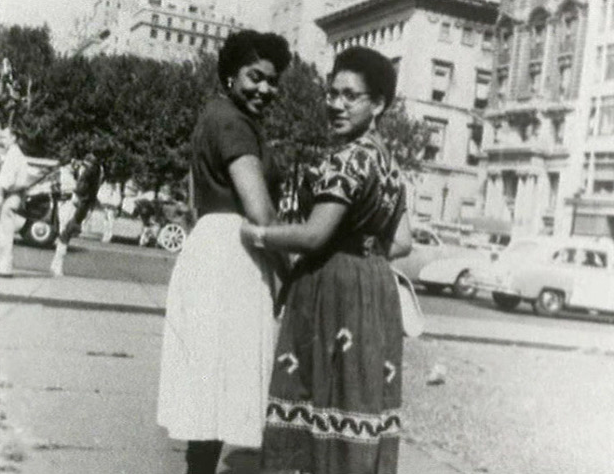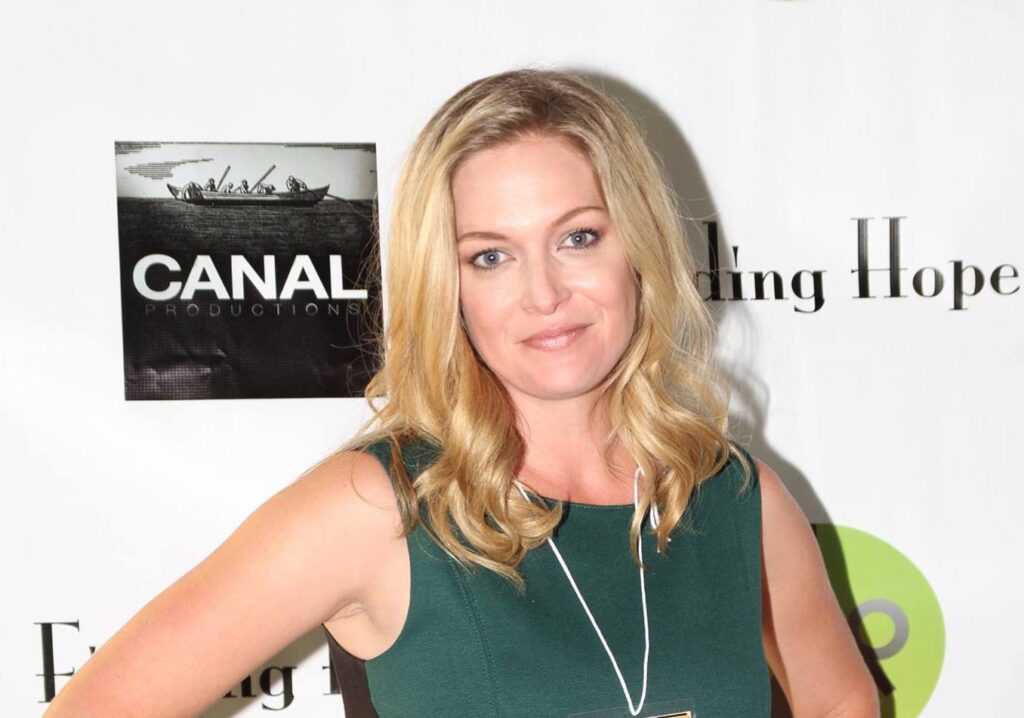Guest Post by Greta Schiller
“Before Stonewall” traces the making of America’s lesbian and gay community from the turn of the century to the Stonewall Riots. I never imagined the incredible journey the film would take around the world, nor it’s lasting impact on the social, political, and cultural landscape.
What makes a film evergreen? I have pondered this as “Before Stonewall,” my first feature documentary, is back in cinemas after 35 years. It was first released in 1984 with its American premiere at the Sundance Film Festival and its European premiere at the Berlinale, followed by a successful theatrical release in many countries and a national broadcast on PBS. The film won an Emmy for Best Historical or Cultural Program, an Emmy for Best Research, and I was nominated for Best Director.
In 2016 we were invited to present a retrospective screening in the Panorama section of the Berlinale. This meant I had the pleasure of spending hours with the film again as I restored the 16mm negative for a new DCP. My appreciation for the incredible work we all put into making the film was renewed. Any film is the sum of its parts and the parts for this film were spectacular, each a diamond in the rough.
Research Director Andrea Weiss was a star diamond miner, working in dark windowless rooms looking for traces of an American subculture that had been systematically erased from mainstream archives. To find answers, she had to think in new ways and get inventive with her search terms: “perversion” for gay; “arrests” for harassment; under the category of New York street life she found Allen Ginsburg and Jack Kerouac hanging out in the Village. Seeing women dancing together during WWII (no men in the Women’s Army Corps!) as possibly lesbian. Gays and lesbians lived in the same society as straight people — some of these images just by simple arithmetic included gay and lesbian people. So why not reclaim these images to include we who had been erased?
The arduous task of finding interviewees who spoke well, had good stories that fit into my vision for the overall film, and would appear on camera, on national television no less, was a monumental task.
My vision, shared by the creative team, was to do a decade by decade survey that represented the rich diversity of gay and lesbian experiences. Women and people of color were much harder to convince to let us interview them, as they had much more to lose. Many had kids or ex-husbands, vulnerable jobs, and a deep visceral fear of being outed.
With Andrea and my co-director, Robert Rosenberg, I scoured the country meeting folks to pre-interview and cajoling them into sharing their private scrapbooks and home movies. We were asking people who lived most of their lives in the closet to go public, and it was essential we earn their trust. Remember, in 1982 gays and lesbians had no legal protections from being fired or evicted, to keep their kids or to adopt — coming out meant you could lose everything.
With the theatrical re-release of the film timed for Stonewall 50, the years we spent doing research, fundraising, and editing can all be seen on screen. Today, post-Stonewall, researchers on queer topics can search the web, archives have “gay” or “lesbian” as a topic to search under, and footage can be ordered and streamed in minutes. We relied on the old joke — “telephone, telegraph, and tell a queen” — for information gathering.
When I began the “Before Stonewall” project, it was my fourth film and my first feature documentary. There were very few feature docs that played in cinemas and even fewer that were directed by women. To the extent that I had mentors, they were men. Women Make Movies — where I had my first job — and Iris Films were the only organizations that made and distributed films directed by women. This was years before any infrastructure of support and mentorship for women existed.
At that time we used to joke that being an independent filmmaker meant being independently wealthy. But I came from a Midwest working class family and my world growing up was extremely diverse. We were the Townies who lived in public housing on the outskirts of a university town. And, fortunately for me, that town elected the first openly lesbian politician, had a Gay Liberation Front as early as 1970, and hosted an ethnic diversity culture festival many years before it became common to do so. Most crucially for me, the university had student film societies that screened European art films; there was the legendary Ann Arbor Film Festival; even Third World Newsreel had a branch office.
I was steeped in the social, political, and cultural milieu that so strongly informed my vision for “Before Stonewall.” I had an innate sense of what is now called intersectionality. And this I believe is one key reason that our film has stood the test of time, making it what the film business calls an evergreen.
As the director with “final cut” on my first feature documentary, I never thought to protect myself with a contractual agreement that stated I would get “a film by” credit. In keeping with standard film industry practice, on the film’s first release in 1985, I was seen as the primary creative force and the film was marketed as a film by Greta Schiller. Jumping ahead 35 years to the film’s re-release, I was astounded to find that the executive producer instructed the distributor to release it as a film by the three producers (of which I am one) because, in his “memory,” we all sort of directed it together — even though he himself had submitted my name for an Emmy which resulted in my nomination as Best Director!
One thing I have learned is that male bonding — the phone calls, emails, and lunches that men have because they are “friends”– is still omnipresent. Even, or maybe especially, men who wear the feminist cloak are culpable. Obscuring my credit and my role on the re-release of this iconic film is not contractual — it is what used to be called a “gentleman’s agreement.”
As a 35-year veteran of the documentary trenches, I can tell many tales. My particular cautionary tale for today is get your own lawyer from the start and pick your battles wisely. I have had a successful career which was launched by “Before Stonewall.” The film was the first creative collaboration between Andrea Weiss and myself, and we produce and direct independently through our own Jezebel Productions, doing what we most love to do. This is a rare gift.
First Run Features’ re-release of “Before Stonewall” opens June 21 in NY and June 28 in LA.
Greta Schiller is an award-winning independent producer and director of documentary films. Over the first three decades of her career, her work focused on unearthing lost histories of marginalized groups and writing their experiences into the cultural narrative. For her films “Before Stonewall,” “International Sweethearts of Rhythm,” “Tiny & Ruby: Hell Divin’ Women,” “Paris Was a Woman,” and “The Man Who Drove with Mandela,” among others, she has received two Emmy Awards, the first US/UK Fulbright Arts Fellowship in Film, Audience Awards for Best Film at numerous festivals from Berlin to Paris to Seattle, and artist grants from the National Endowment for the Arts, New York State Council on the Arts, and New York Foundation for the Arts.







